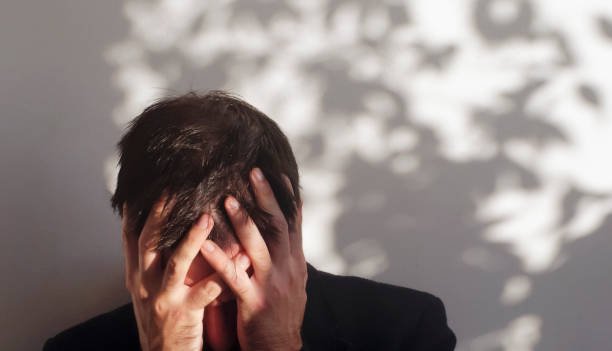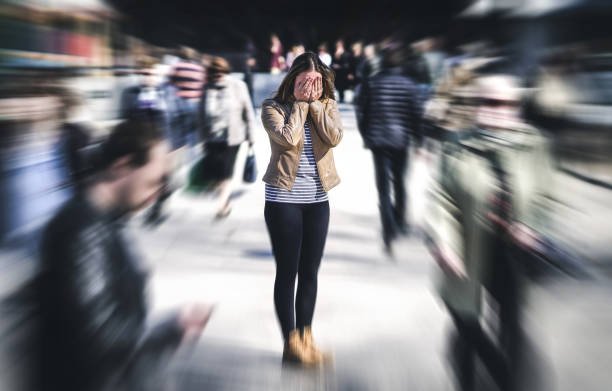
What is Anxiety? 6 Major Symptoms, Causes, and Treatments of Anxiety Disorders
What is anxiety?
Anxiety is a normal human emotional reaction. Most people will feel anxious, nervous or uneasy in certain situations, such as before a big exam, when they have trouble at work, or when making important decisions. However, excessive anxiety may evolve into an anxiety disorder, causing great stress to the patient, and may even cause the patient to lose the ability to live a normal life.
According to Mental Health Foundation UK, in 2021, those aged 16 to 29 years were most likely to have some form of anxiety (28% likely). This decreased steadily through the age groups, and the least likely group was those aged 70 and over (5% likely).
According to the World Health Organization (WHO), depression is the number one cause of human disability and one of the major diseases causing the burden of disease (GBD). The mental health condition of modern people cannot be ignored. What is anxiety? Tell you about the six major types of anxiety disorders, as well as their symptoms and treatments.
Physical symptoms of anxiety disorders
Symptoms may vary depending on the type of anxiety disorder. The following are nine common physical symptoms:
- Headache
- Heart palpitations, shortness of breath
- Dry mouth, nausea and vomiting
- Cold hands and feet, sweating, tingling and numbness
- Sleep disorders, nightmares
- Feeling panicked, scared and nervous
- Unable to calm down and repeatedly thinking about past trauma
- Repeating a behavior (e.g. washing hands repeatedly)
- Unable to suppress repetitive and meaningless thoughts

Main types of anxiety disorders
There are six main types of anxiety disorders:
- Panic disorder:
The typical symptom of Panic disorder is a “Panic attack”. The patient will suddenly become nervous, fearful and anxious without warning. It may be accompanied by symptoms such as sweating, chest pain, palpitations or a feeling of suffocation, and usually It suddenly disappears after 10 to 30 minutes. - Phobia:
Patients have persistent and intense fear of certain things or situations. Although they know that they are overreacting, they still have difficulty controlling it. Common phobias include: Claustrophobia, Trypophobia ), clown phobia (Coulrophobia), fear of heights (Acrophobia). - Social anxiety disorder (SAD)
SAD may be caused by bad social experiences in the past. Patients will worry excessively about their interpersonal relationships, care about the opinions of others, and are afraid of being laughed at. This will cause great pressure on themselves and avoid social interactions. the behavior of. - Generalized anxiety disorder (GAD):
Patients worry excessively about no matter how big or small the situation is, or become nervous, often causing symptoms such as sleep disorders, headaches, and palpitations. However, patients often do not think this is the case, so diagnosis is difficult. - Patients with Obsessive-Compulsive Disorder (OCD)
OCD will uncontrollably repeat certain behaviors. The reason may be like phobia, excessive worry and anxiety about certain things, but patients with OCD will reduce anxiety through repetitive behaviors. . For example: I keep washing my hands repeatedly because I am too afraid of germs. - Post-traumatic stress disorder (PTSD)
PTSD is a condition that persists after a major trauma, such as serious injury, sexual assault, the unexpected death of a loved one, witnessing a death, or experiencing a near-death experience. During an attack, there will be morbid fear and helplessness, and there may also be avoidance or emotional numbness.

Causes of Anxiety Disorders
The causes of the above anxiety disorders are different and are not caused by a single factor. However, generally speaking, stress and anxiety are closely related. Excessive stress and anxiety are one of the main causes of anxiety disorders. Others include genetics or being prone to stress. , anxious personality, are also related to the formation of anxiety disorders.
Anxiety disorder treatment
Although anxiety can be improved on its own through some techniques, such as doing yoga, practicing mindfulness, meditation or exercise. However, severe anxiety disorders cannot be cured by personal efforts alone and must go to the hospital for treatment. There are mainly two ways:
- Medication:
Antidepressants or other anti-anxiety medications can be used to treat anxiety disorders. - Psychotherapy:
Psychotherapy refers to a professional psychiatrist or psychotherapist who simultaneously understands and responds to the disease through dialogue. Cognitive Behavioral Therapy (CBT) is the most common treatment for anxiety disorders. The treatment method can help patients understand themselves and change the thinking and behavior patterns that lead to negative emotions.












